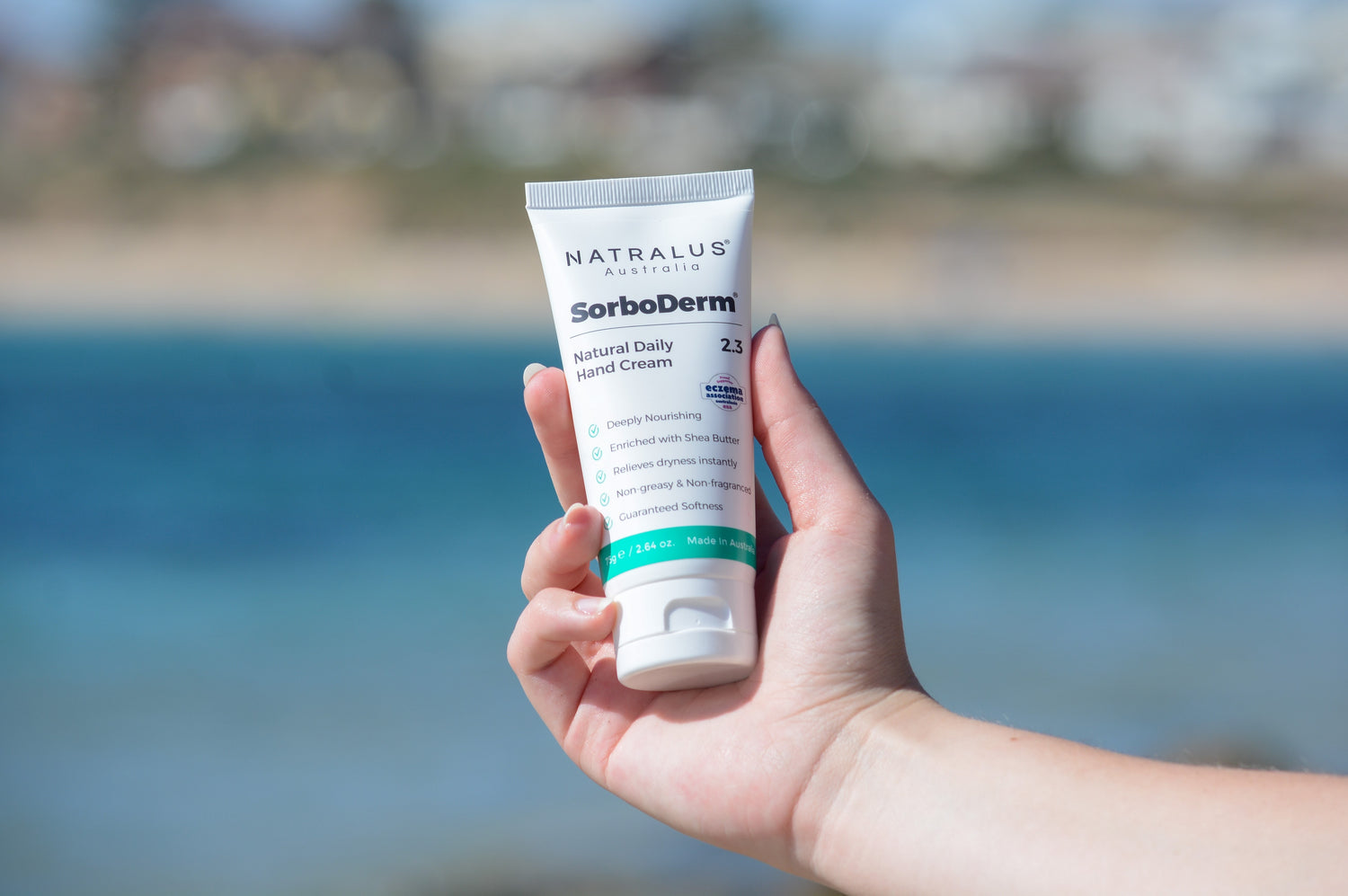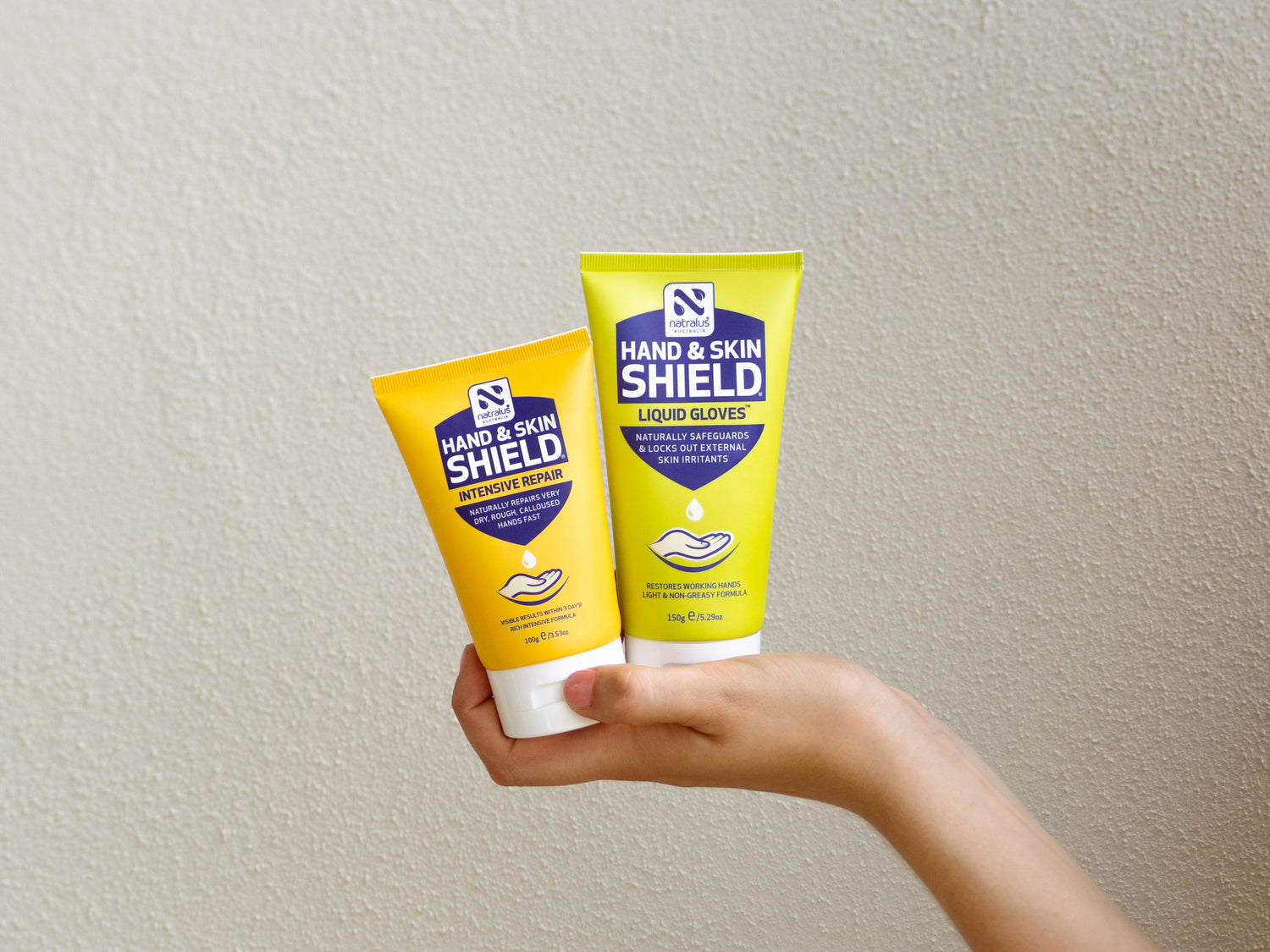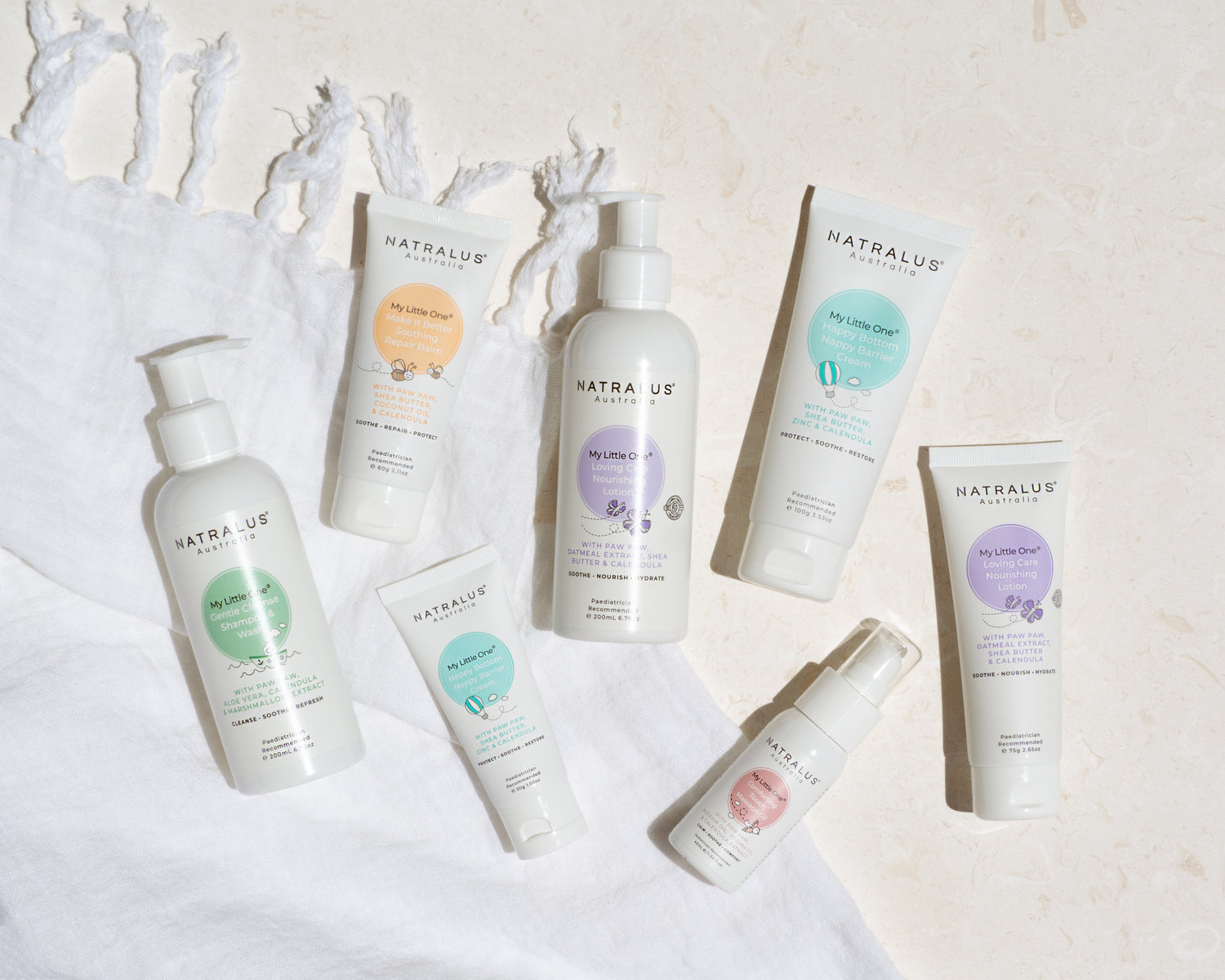Winter is here! Winter elicits thoughts of hot chocolate, twinkling lights, snowball fights, and cozy sweaters... but it also reminds us of the agony of dealing with dry, chapped or cracked hands and in some cases, cold-induced eczema or psoriasis.
Why is winter so harsh on hands?
It's the perfect storm for adverse conditions. Wind and cold air suck the moisture out of the skin and cause dryness. Some people may also experience drying out due to underlying medical conditions such as diabetes and lupus.
But you don't need to hibernate until the weather is warm and friendly once more! Neither do you have to visit a dermatologist for treatment or advise! With the right natural skin care tips and routines, you can keep your hands healthy and happy through the winter season. We have compiled a list of 9 tips for winter hand care.
1. Use a moisturizer
Ditch chemical-based moisturizers; they’ll do nothing but pamper you with a false sense of security. If you have to use one, consider an organic hand cream. It will keep your hands soft, healthy, and supple. Apply a small amount of lotion on the back of one hand and rub it evenly with using both hands. Pay particular attention to your knuckles and dry areas. There are also natural oils such as almond oil and coconut oil which may yield similar results.
2. Treat the cracks
Winter is notorious for causing skin breakdown. Harsh cleaners and soaps may also contribute to breaking. Spot treat damaged areas with an intensive formula to restore the health and vitality of your skin. Also remember to eat fruits and greens rich in vitamin C such as cauliflower, broccoli, and Brussels sprouts. Vitamin C plays a vital role in collagen synthesis and thereby helps in healing damaged skin and preventing dry skin.
3. Apply aloe vera
Aloe Vera is a common ingredient in organic skin care products. Not only do its compounds inhibit pathogens, but aloe vera also has anti-inflammatory and moisturizing properties. It is thus ideal for broken and irritated skin. Generously apply aloe vera gel on your hands and leave it there for a while. You can also add some drops of Vitamin E oil to hasten the healing process. After that, wash off the gel using lukewarm water. Apply a moisturizer after that to keep the skin supple and moist.
4. Exfoliate, exfoliate, exfoliate!
Ever wondered why your treatment is taking longer than usual? Or why your skin feels like chalk? Dead skin cells can not only make your skin dull and flaky, but they can also inhibit the absorption of treatments. Exfoliating helps remove dirt, germs and dead skin while at the same time improving blood circulation and adding moisture. Be sure to use a gentle exfoliator on your hands to avoid scratching your skin. You can use a spoonful of sugar combined with hydrating oil such as jojoba oil to make a home treatment that will leave your hands feeling clean, soft, and hydrated.
5. Wear gloves
You already know that you need to keep your hands covered in winter. Covering hands is essential as it prevents one from catching a cold and unnecessary skin dryness by fending off cold air. You should also avert dryness by wearing gloves when washing dishes. Regular dish-washing using hot water and abrasives makes you susceptible to dry skin, parches, and cracks. However, if you don't have a pair of gloves, make use of a hand and skin shield cream to lock out irritants, chemicals, and detergents from your precious hands.
6. Wash hands using tepid water
The need to keep warm during winter cannot be overemphasized. Nevertheless, you might do yourself more harm than good in your efforts to stay warm. While washing your hands using hot water sounds like the right thing to do, it is far from it. By doing so, you will only be washing off the natural lipids that help in preserving moisture. Instead, pamper yourself with a warm hand wash and follow it up with applying a moisturizing lotion.
7. Avoid booze
You are probably wondering what your favourite bottle of wine has to do with hand care. Don't fret; we'll let you in. We are only recommending that you shun typical alcohol-based hand sanitizers. It's no doubt that alcohol is an excellent antimicrobial agent. However, alcohol, when used on the skin, has its cons. For instance, it causes the skin to dry significantly. When used regularly, it can lead to over-drying, irritation, and, in a few cases, rashes. Luckily, you can invest in an alcohol-free hand sanitizer and leave your hands feeling soft and naturally moisturized.
8. Don’t forget the cuticles
Cuticles can be easily overlooked when healthy. However, dry and peeling cuticles can be painful, an eyesore and a conduit for germs to enter the body. Since you don’t want to find yourself with a swollen nail bed, always keep your cuticles hydrated using a cream or natural oil such as castor oil to create a barrier against bacteria, fungus, and yeast. Make this a routine grooming step, as equally essential as applying deodorant.
9. Invest in a humidifier
You might need to consider investing in a humidifier if the air at your home is dry. Humidifiers, as the name suggests, serves to force moisture into your indoor air in the form of an invisible vapour. As mentioned earlier, dry air doesn't augur well with the skin and thus should be avoided like the plague. Find a humidifier that covers the whole house or a portable one that you can carry around.
Bottom Line
The fact that hands are the most used parts of your body necessitates taking good care of them. It is advisable that you shun using chemical-laden formulas and treat, moisturize, and take good care of them, especially in winter. Thankfully, Mother Nature has bestowed us with natural products for this cause. Make the best out of them!





